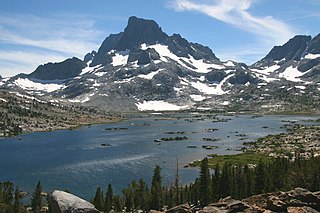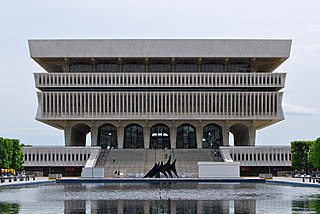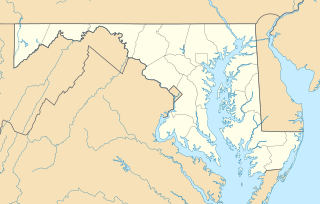The Great Society was a set of domestic programs in the United States launched by Democratic President Lyndon B. Johnson in 1964–65. The main goal was the total elimination of poverty and racial injustice.
MeadWestvaco Corporation was an American packaging company based in Richmond, Virginia. It had approximately 23,000 employees. In February 2006, it moved its corporate headquarters to Richmond. In March 2008, the company announced a change to start using "MWV" as its brand, but the legal name of the company remains MeadWestvaco.

The U.S. Equal Employment Opportunity Commission (EEOC) is a federal agency that administers and enforces civil rights laws against workplace discrimination. The EEOC investigates discrimination complaints based on an individual's race, children, national origin, religion, sex, age, disability, sexual orientation, gender identity, genetic information, and retaliation for reporting, participating in, and/or opposing a discriminatory practice.

The Royal Commission on the Ancient and Historical Monuments of Wales, established in 1908, is a Welsh Government sponsored body concerned with the archaeological, architectural and historic environment of Wales. It is based in Aberystwyth.
The Society of American Archivists is the oldest and largest archivist association in North America, serving the educational and informational needs of more than 5,000 individual archivist and institutional members. Established in 1936, the organization serves upwards of 6,200 individual and member institutions.

The National Natural Landmarks (NNL) Program recognizes and encourages the conservation of outstanding examples of the natural history of the United States. It is the only national natural areas program that identifies and recognizes the best examples of biological and geological features in both public and private ownership. The program was established on May 18, 1962, by United States Secretary of the Interior Stewart Udall.

Gunnar Birkerts was a Latvian American architect who, for most of his career, was based in the metropolitan area of Detroit, Michigan.

The National Wilderness Preservation System (NWPS) of the United States protects federally managed wilderness areas designated for preservation in their natural condition. Activity on formally designated wilderness areas is coordinated by the National Wilderness Preservation System. Wilderness areas are managed by four federal land management agencies: the National Park Service, the U.S. Forest Service, the U.S. Fish and Wildlife Service, and the Bureau of Land Management. The term "wilderness" is defined as "an area where the earth and community of life are untrammeled by man, where man himself is a visitor who does not remain" and "an area of undeveloped Federal land retaining its primeval character and influence, without permanent improvements or human habitation, which is protected and managed so as to preserve its natural conditions." As of 2016, there are 765 designated wilderness areas, totaling 109,129,657 acres (44,163,205 ha), or about 4.5% of the area of the United States.
The Weeks Act is a federal law enacted by the United States Congress on March 1, 1911. Introduced by Massachusetts Congressman John W. Weeks and signed into law by President William Howard Taft, the law authorized the US Secretary of Agriculture to "Examine, locate and recommend for purchase ... such lands within the watersheds of navigable streams as ... may be necessary to the regulation of flow of navigable streams...." This meant that the federal government would be able to purchase private land if the purchase was deemed necessary to protect rivers' and watersheds' headwaters in the eastern United States. Furthermore, the law allowed for land acquired through this act to be preserved and maintained as national forest territory. Six years earlier, the Transfer Act of 1905 transferred control over the federal forest reserves from the General Land Office of the Department of the Interior to the Department of Agriculture and its Forest Service. Responsibility for land purchased through the Weeks Act was not given to former Chief Forester Gifford Pinchot because he resigned in 1907, with the stipulation that he would only resign if he could appoint his successor. This stipulation led to the Forest Service's tradition of picking a head with forestry knowledge. With the land acquired through the Weeks Act, Pinchot's successor obtained the power to issue permits for water power development on National Forests. The Weeks Act appropriated $9 million to purchase 6 million acres (24,000 km2) of land in the eastern United States.

Wayne Norviel Aspinall was a lawyer and politician from Colorado. He is largely known for his tenure in the United States House of Representatives, serving as a Democrat from 1949–1973 from Colorado's Fourth District. Aspinall became known for his direction of the House Interior and Insular Affairs Committee, of which he was the chairman from 1959–1973. Aspinall focused the majority of his efforts on western land and water issues.

The New York State Library was established in 1818 to serve the government of the state. The library is one of the largest in the world by number of items held, with over 20 million.

The National Organization for Women (NOW) is an American feminist organization founded in 1966. The organization consists of 550 chapters in all 50 U.S. states and in Washington, D.C.

The Idaho State Historical Society (ISHS) is a historical society located in the U.S. state of Idaho that preserves and promotes Idaho’s cultural heritage. The society's vision is to inspire, enrich, and reach out to all Idahoans by providing leadership in the areas of preservation and dissemination of the state's dynamic cultural heritage.
Inventoried Roadless Areas are a group of United States Forest Service lands that have been identified by government reviews as lands without existing roads that could be suitable for roadless area conservation as wilderness or other non-standard protections. The Inventoried Roadless areas include approximately 60,000,000 acres (240,000 km2) of land in 40 states and Puerto Rico. Most of these lands are in the western portion of the lower 48 states and Alaska. Idaho alone contains over 9 million acres (36,000 km2) of inventoried roadless areas. The inventoried roadless areas range from large areas with wilderness characteristics to small tracts of land that are immediately adjacent to wilderness areas, parks and other protected lands.

The American Forest & Paper Association (AF&PA) is the national trade association of the forest products industry, representing manufacturers of approximately 80 percent of the U.S. pulp and paper industry and 50 percent of the wood building material capacity.

The California Wilderness Act of 1984 is a federal law, passed by the United States Congress on September 28, 1984, that authorized the addition of over 3 million acres (12,000 km2) within the state of California to the National Wilderness Preservation System.

Norman Irving Wengert was an American political scientist who wrote about the politics of natural resources, advanced a seminal theory of the "politics of getting", and had a number of significant roles in his public and academic career. He was born in Milwaukee, Wisconsin to Eugene F. and Lydia Semmann Wengert. He pioneered the revival of the study of political economy in the United States with publication of Natural Resources and the Political Struggle, and later authored more than fifty monographs and studies on the political economy and public administration of environmental resources. His scholarship explored the politics of natural resources and environmental policy formation and administration, with emphases in national energy policy, urban water planning and management, land use planning and controls, national forest management, and citizen participation in administrative processes.

Ironsides is an unincorporated community or "post village" in Charles County, Maryland, United States with zip code 20643. The Post Office was established in 1897 and remained open until at least 1976. Today Ironsides area residents have Indian Head or Nanjemoy addresses. The nearby historic post offices of Nanjemoy and Doncaster, dating from 1800 and 1855, are often associated with historical records of Ironsides. The elevation is 126 feet (38 m). The origin of the name of the town is unclear; it's either a reference to the Frigate USS Constitution, known as "Old Ironsides", or to iron siding on a house renovated there in 1886. Nearby, Old Durham Church is a local landmark; originally a log structure, it was replaced with brick in 1732 and renovated in 1791. Revolutionary War General William Smallwood and colonial Governor William Stone are buried there. Smallwood was elected vestryman at Old Durham Church in 1788, and built a road from his home at Mattawoman Plantation in modern Rison, to the church. "Smallwood Church Road" today is a paved two-lane road running from Rison to Ironsides. During the colonial period, the Ironsides area was divided up into small farms with colorful names: Ward's Delight, Ward's Addition, Wards Trouble, Ingerthorpe/ Ingerstone/ Angerstone/ Ingolthorpe, Charlestowne, Ragged Chance, Randolphs Addition, Senas Delight, Dembar Addition, the Land Resurveyed, Franklins Beginning, Expectation, and Moles Adventure.

Rudolph Andreas Michael Wendelin (1910–2000) was a United States Forest Service employee and the best-known artist behind Smokey Bear. Beginning in 1944, Wendelin became the full-time artist for the Smokey Bear campaign. He was considered Smokey Bear's "caretaker" until his retirement in 1973.















